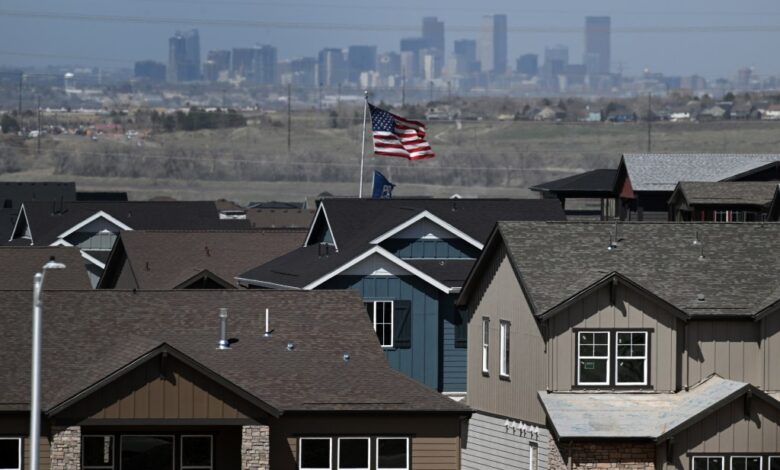Property values lower across most of metro Denver in latest assessments

Homeowners in the metro Denver area can finally breathe a sigh of relief as county assessors report mostly flat to declining residential property values. This news comes as a welcome change after 14 consecutive years of rising valuations and property tax bills, including a significant jump two years ago in many areas.
“This is a bit of a sigh of relief,” said Denver County Assessor Keith Erffmeyer at a news conference on Wednesday morning.
Property owners, who have been grappling with increasing property taxes, can now relax as valuations have stabilized. County assessors, who dealt with a surge of protests from upset property owners two years ago, can now enjoy a more manageable pace in their work.
Assessors in Colorado are required to determine property values every two years, which then influences property taxes. Valuations were determined as of June 30, 2024, using transactions from the past 24 months.
In Denver County, with 240,000 residential properties, valuations decreased by an average of 1.6%, ranging from a 5% decrease to a 5% increase. This is a significant contrast to the 33% average gain in the previous two-year cycle.
Major declines were observed along the I-25 corridor and in neighborhoods closer to downtown. Some areas experienced significant drops, such as Athmar Park at 8.7%, Clayton and College View at about 7.5%, North Capitol Hill at 7.3%, and Civic Center at 6.99%.
On the other hand, Cherry Creek saw an average increase of 11.7%, while the Belcaro neighborhood had a 7% increase. Neighborhoods like Union Station and Denver International Airport also saw significant gains, primarily due to new construction.
In Arapahoe County, most residential properties experienced a change ranging from flat to a 7% decrease, while Adams County reported declines in the 2% to 6% range for most homes.
“For many of us who have seen double-digit increases in property values in recent years, this change will be a relief,” said Arapahoe County Assessor PK Kaiser.
In Douglas County, about two-thirds of homes saw a decline in value, ranging from a 10% decrease to a 5% increase, a significant moderation from the 47% increase reported two years earlier.
Other counties, such as Boulder, Broomfield, and Jefferson, also reported varying changes in property values. Assessors noted that there was no discernible pattern in which residential property types rose or fell in value.
Property owners can expect notices of valuation in the mail soon, which will be more streamlined and contain less information than in previous years. The removal of an estimate of expected taxes will be a noticeable change, as it proved to be meaningless in the past.
Owners who disagree with their property valuation can appeal until June 9, either online, via mail, or in person. While local governments and school districts could still raise mill levies, most property owners should find relief in the current valuation trends.
Originally Published:





